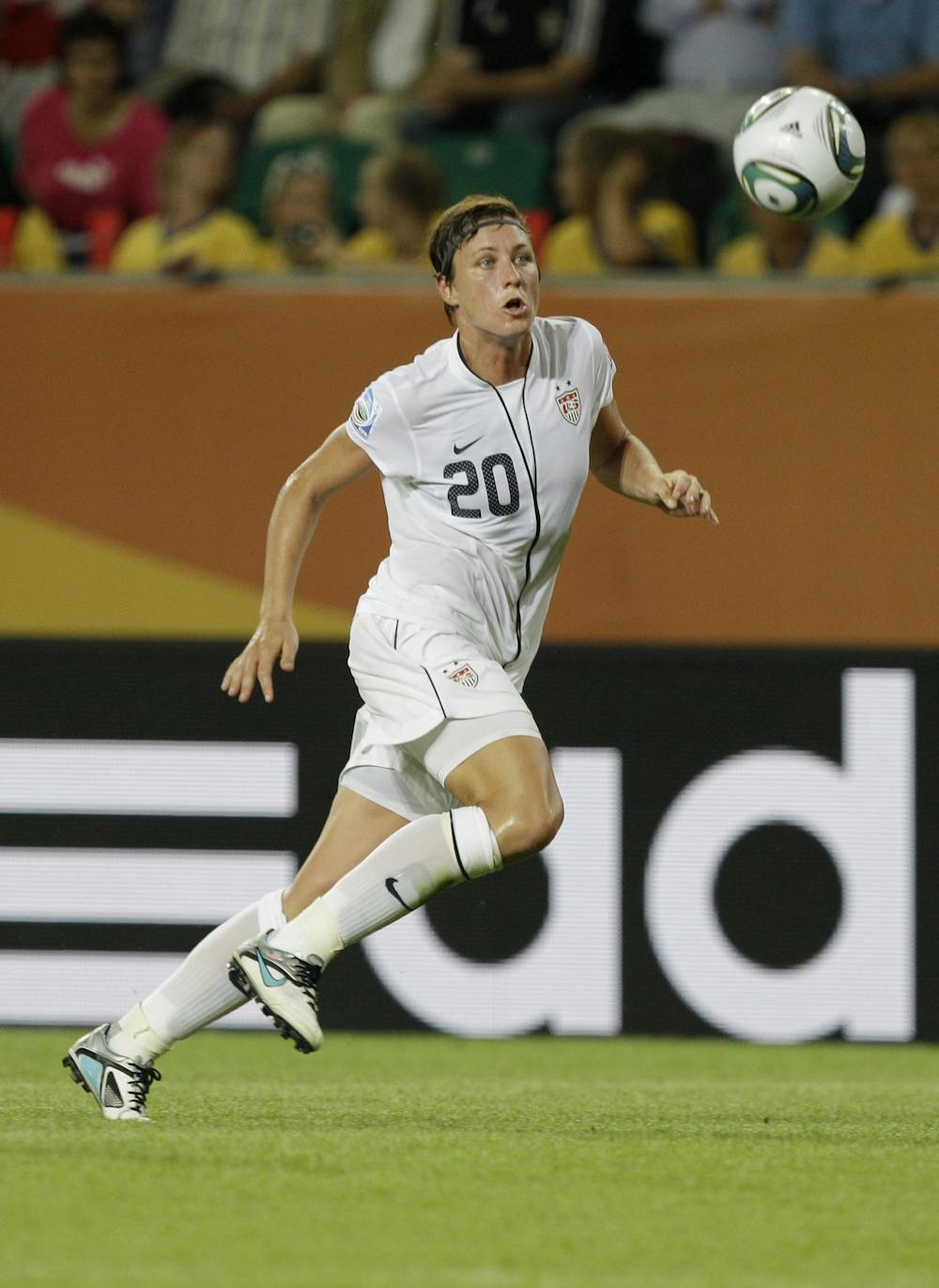When U.S. women's soccer coach Pia Sundhage first evaluated former-Gators star Abby Wambach in 2007, she demanded more out of the aggressive striker than just her usual aerial theatrics.
"We had Abby Wambach back then and I thought that too many balls went to her head," Sundhage said in a phone interview Thursday. "And she is a threat, you can see today she is one of the best players in the world in the air, but I wanted to be more unpredictable by playing the ball on the ground and trying to find the rhythm."
In each stage of Wambach's career though, from her time at Florida to the Women's World Cup Final in Frankfurt, Germany, the 31-year-old's weapon of choice for dominating defenses has remained the same.
Following her 122nd minute equalizer against Brazil on Sunday, Wambach has now scored two overtime headers to stave off elimination of the U.S. in a major tournament, with the first coming against Greece in the 2004 Olympics.
She then scored an additional game-winner in regulation against France, just three days after her Brazil triumph.
"Ironic might be a perfect word for that," Wambach said. "But I think in general, Pia has been just a great leader for us to be able to follow. And whether it's my head or Hope's [Solo] right arm, Rachel Bueller's body ‘Buell-dozing' people all over the field; every single person here from Pia as our leader to even our equipment manager, every person plays a role."
Signs of Wambach's domination in the air began in 1998 when she scored a header in her collegiate debut against Central Florida. The trend would continue during her four years at Florida, as nearly a third of her school-record 96 goals came from headers.
Though she has been successful scoring with the technique at every level, Wambach was quick to credit her teammates Megan Rapinoe and Lauren Cheney for their on target supply during this World Cup.
"The biggest thing for me is that I knew that the chances would come," she said. "And there's always two sides to scoring with your head or your shoulder. There's got to be a good serve, there's got to be enough craft from another player on the team."
Heading into Sunday's Final against Japan, Sundhage said she is stressing for her team to lay off the long ball which has made Wambach and the U.S. women's scoring attack effective, but ultimately predictable.
"The key is transition," the coach said. "When we win the ball, I think sometimes we're too eager to play that big ball, because there's so much space. In the Final we need to be smarter than that."
But at 5-foot-11, Wambach carries a four inch advantage over any member of the Japanese squad and will likely remain the Americans top target off set pieces.
"Obviously the goals, the awards, all of that stuff it's just all ego-based, individualistic stuff that I'm not going to even acknowledge until this whole thing is over," Wambach said. "The only way we're going to win is if we do it together. The only way we will put ourselves in a position to be world champions is if we continue on the same path that we've been on."
United States' Abby Wambach controls the ball during the group C match between Sweden and the United States at the Women’s Soccer World Cup in Wolfsburg, Germany, Wednesday, July 6, 2011. (AP Photo/Marcio Jose Sanchez)






